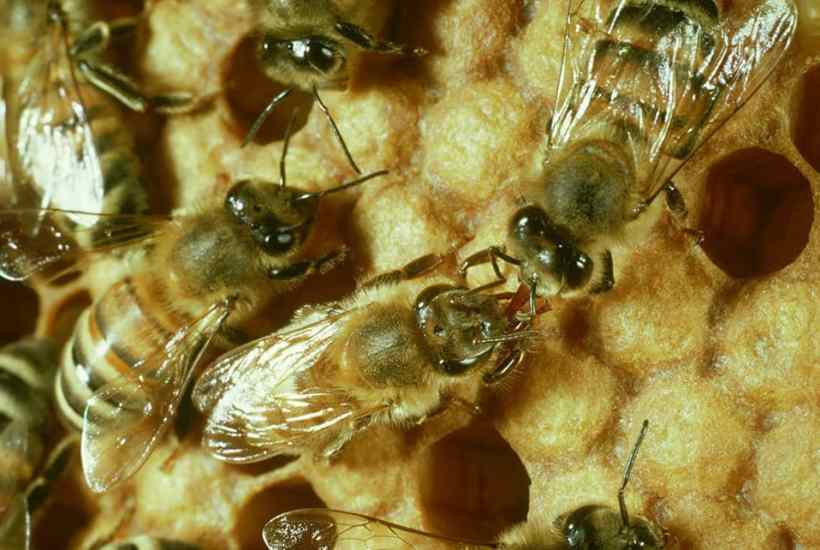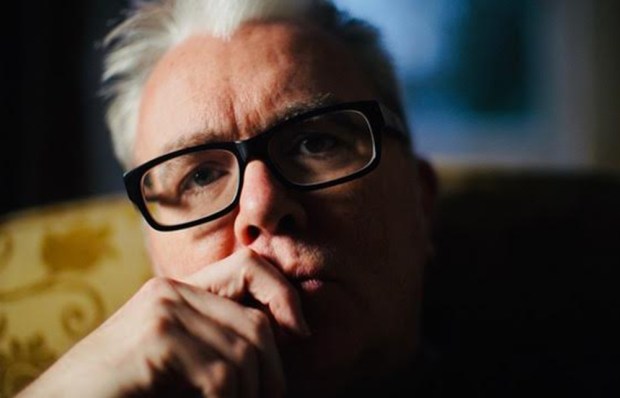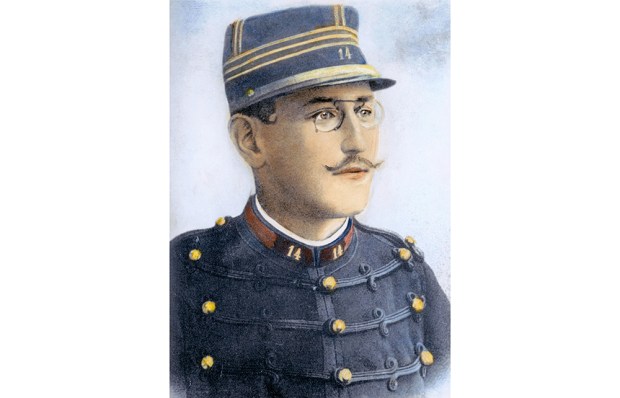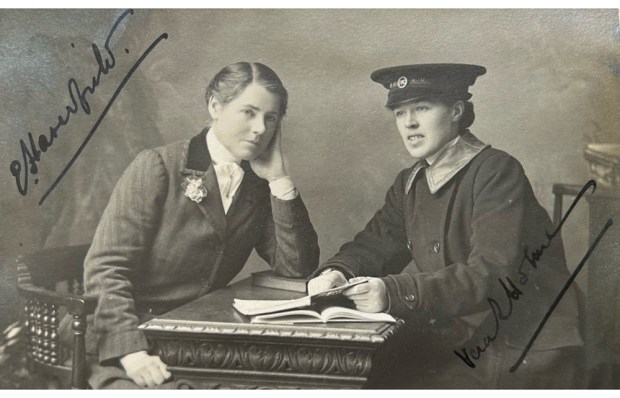One day the writer and artist James Bridle rented a hatchback, taped a smartphone to the steering wheel and installed some webcams in order to make his own self-driving car. Armed with software cut-and-pasted from the internet, his aim was to collaborate with the AI he’d thus devised and travel to Mount Parnassus, sacred to Dionysus and home of the Muses, ‘to be elevated to the peak of knowledge, craft and skill’. Just try telling that to the traffic cops.
This batty project had a serious point. Bridle wanted to subvert the idea that we cede control to our dismal robot overlords every time we plug co-ordinates into the GPS. To that end, he went about training the car, which he had rigged up with what amounted to a neural network that functioned like a simplified brain. The car learned from visual cues that, say, the lines on a road are painted to ensure vehicles don’t cross them and become crash statistics.
‘I wanted to understand AI better,’ Bridle writes. ‘I wanted to have the experience of collaborating with an intelligent machine.’ This is the theme of his book: we must rethink what it means to be intelligent in a spirit of collaboration with non-humans. Alan Turing’s 1950 paper Computing Machinery and Intelligence suggested a computer was intelligent if it could engage a human in conversation – which is, apart from anything else, offensive to gorillas and, quite possibly, slime. Bridle introduces us to alternative intelligences such as the octopus, which, so far as I understand it, thinks with its tentacles as much as its brain. He also celebrates the wood wide web – the means by which trees form a mycorrhizal network to pass signals via fungal threads, thereby sharing resources and warning peers about incoming threats.
David Attenborough argued on the same lines in his recent Green Planet series, suggesting that plants are far from stationary and silent: rather, they might be conceived of as members of chatty mutual aid societies, from which we would do well to learn if we are to survive climate change.
These are not new thoughts. Prince Pyotr Kropotkin, the 19th-century Russian anarchist and naturalist, introduced the term ‘mutual aid’ to describe what we, thinking inside the Darwinian evolutionary paradigm, have missed. Kropotkin wasn’t saying that On the Origin of Species was specious; rather, that while flora and fauna are certainly red in tooth, claw and thorn, ‘there is, at the same time, as much, or perhaps even more, of mutual support, mutual aid and mutual defence’.
Humans have long sought to distinguish themselves from nature, while neo-liberal economic theory, Bridle submits, posits we are discrete individuals bent on personal utility maximisation and are jerked around by selfish genes bent, if Richard Dawkins was right, on their own survival. Recently, the anthropologist Bruno Latour, in his book Down to Earth, argued that we should learn from termites. Even though they live in mounds made from masticated earth and fecal matter, they don’t lay waste to the Earth, nor are any of them insect Elon Musks, seeking to jet off to another planet having ruined this one. Rather, their default position is of conservation and cooperation.
For Bridle, the point is we should become Doctor Dolittles, not so much talking to the animals as attending mindfully to their wisdom and emulating non-humans’ stirring capacity for co-operation and selflessness. Think dancing bees and self-sacrificing ants. We must embrace what he calls the more-than-human-world.
What makes his book new and interesting is its insistence that AI, rightly used, can help in this project. But there is a problem. Computers have been fast-tracking humanity down the wrong path. He writes:
One of the great misunderstandings of the 20th century, which persists into the present, was that everything is a decision problem. The appearance of computers was so wondrous and their abilities so powerful that it convinced us that the universe is a like a computer, the brain is like a computer, that we and plants and animals are like computers.
As a result, we believe that the world can be broken down into data chunks that are fed into computers to produce concrete answers that we can act on with moral impunity and logical irrefutability.
That is nonsense, says Bridle; and from this error flows all kinds of violence. We reduce the world’s beauty to numbers and degrade, erase, torture and kill those things and beings that do not fit in with that world view. Ways of Being begins with a furious denunciation of recent use of AI to search for oil beneath the mountains and forests of Epirus in northern Greece:
What sort of intelligence participates in the drilling, draining and despoliation of the few remaining wildernesses left on Earth, in the name of progress we already know to be doomed? This is not an intelligence I recognise.
Can AI be a force for good? Bridle introduces the term ‘internet of animals’, which apparently signifies how we might use data culled from GPS sensors on birds and antelopes to tap into their wisdom about climatic and other changes. This is the kind of symbiosis between humans, the natural world and AI he champions.
If all this sounds rather pious, happily Bridle goes off message. Before returning his rental, he parked up on waste ground beneath Mount Parnassus, poured salt around the self-driving car in a broken circle meant to project the road markings symbolising ‘No Entry’ inwards. The car, having learned that crossing these markings was not only contrary to the highway code but suicide, was stuck, like Brünnhilde in her fiery circle.
Bridle’s video of what he called ‘The Autonomous Trap’ went viral. Of course it did: we love tales of machines confounded, robots busted down to size and algorithms undone by rebellious humans. It may not be intelligence as we know it, but it is human, all too human.
Got something to add? Join the discussion and comment below.
Get 10 issues for just $10
Subscribe to The Spectator Australia today for the next 10 magazine issues, plus full online access, for just $10.
You might disagree with half of it, but you’ll enjoy reading all of it. Try your first month for free, then just $2 a week for the remainder of your first year.














Comments
Don't miss out
Join the conversation with other Spectator Australia readers. Subscribe to leave a comment.
SUBSCRIBEAlready a subscriber? Log in